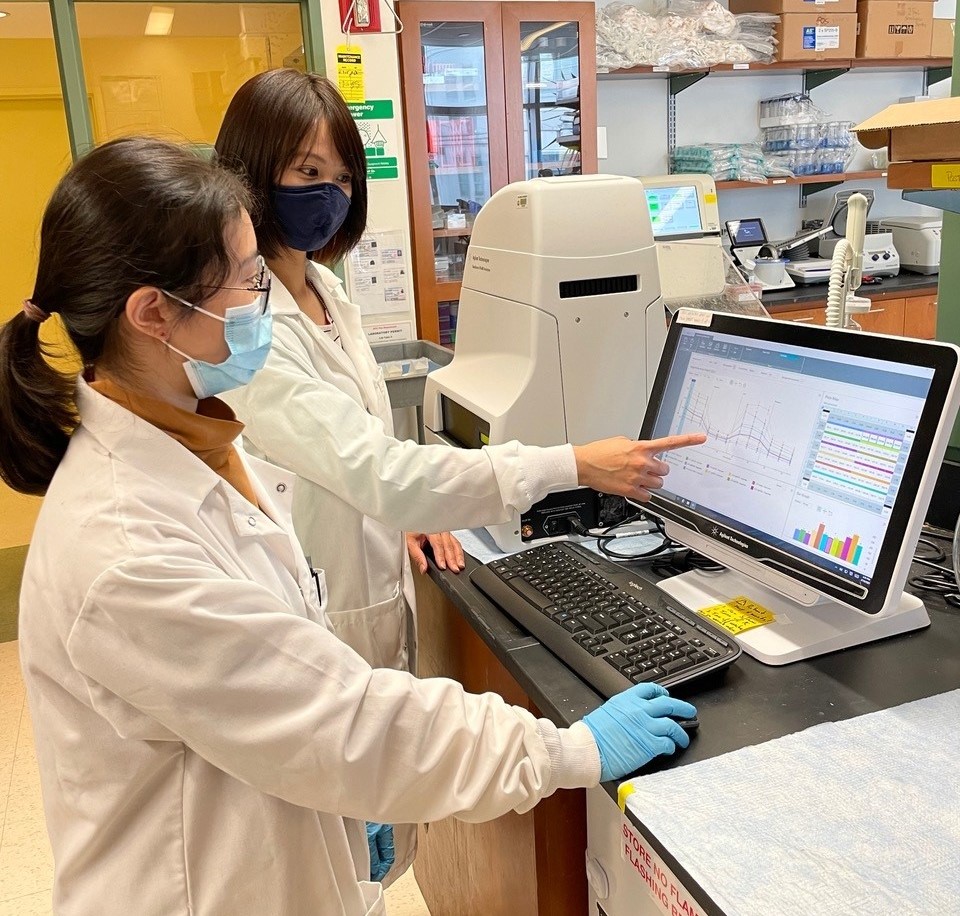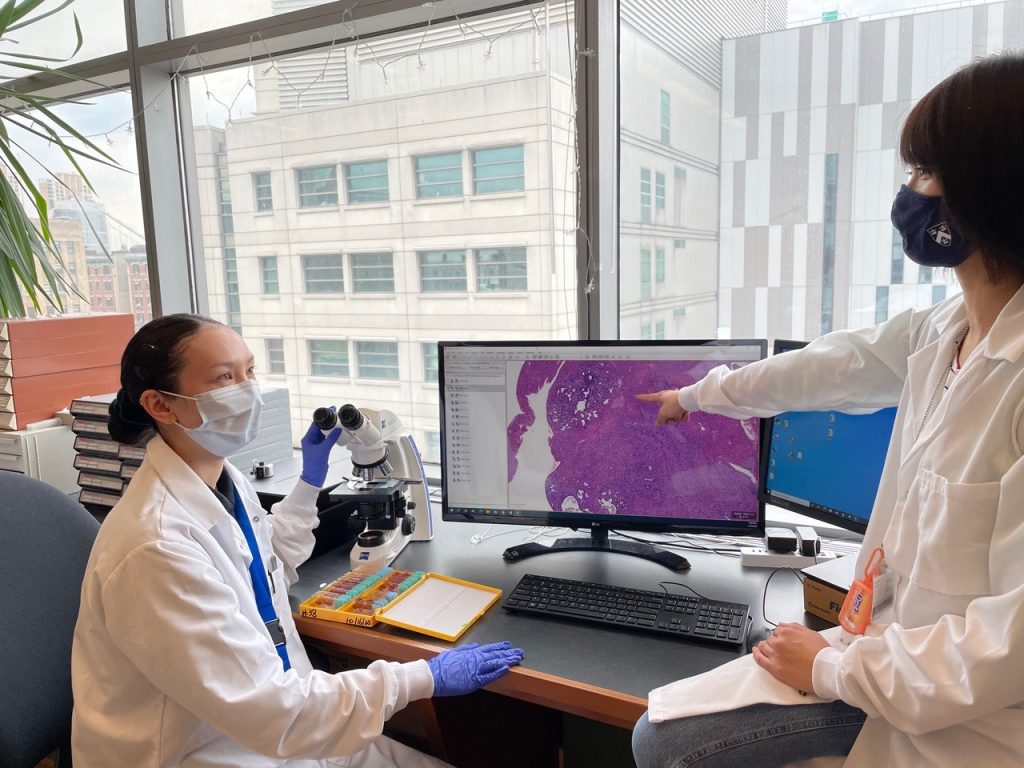Christine Iok In Chio, PhD ‹ Back To 2021 Winners
2021 Winners
Assistant Professor
Genetics and Development
Columbia University Irving Medical Center
Vision
Pancreatic ductal adenocarcinoma (PDA) is a relatively common and highly lethal malignancy. Although most PDA patients carry common pathogenic mutations (G12D, G12V) of the KRAS gene, therapeutic agents that effectively target mutant KRAS are still not available. Nonetheless, malignant activation of KRAS generates metabolic byproducts, including reactive oxygen species (ROS), that likely contribute to tumor development and drug resistance. Even though the role of ROS in cancer remains very poorly understood, one popular view posits that ROS can promote tumorigenesis, presumably through the mutagenic consequences of oxidative DNA damage. In addition to this indiscriminate activity, we recently found that ROS can also perform signaling functions in PDA cells through oxidative post-translational modification (oxPTM) of proteins at specific cysteine and methionine residues. Using ex vivo organoid models and chemical proteomic approaches, we seek to develop novel therapeutic approached to pancreatic cancer by elucidating basic mechanisms of cancer redox biology.
Christine Iok In Chio, PhD is an Assistant Professor of Genetics in the Institute for Cancer Genetics at Columbia University Irving Medical Center. Dr. Chio earned her PhD at the University of Toronto studying the interplay between innate immunity and cancer development under the mentorship of Dr. Tak Wah Mak. Subsequently, she joined the lab of Dr. David Tuveson at Cold Spring Harbor Laboratory to pursue her postdoctoral training. Since then, her research has focused on understanding the role of cellular redox regulation, particularly in the development of pancreatic ductal adenocarcinoma (PDA). She discovered that reversible cysteine oxidation controls PDA cell survival through the regulation of transcript-specific translation (Cell, 2016). Subsequently, her independent group at Columbia showed that key mRNAs regulated in this manner encode enzymes involved in redox and glucose metabolism (Nature Communications, 2019), establishing cysteine-based oxidative modification of translation factors as a novel mechanism that regulates PDA metabolism and survival. For her work, Dr. Chio has received the Human Frontiers Fellowship Award, the Damon Runyon Fellowship Award, the DoD Career Development Award, the Pancreatic Cancer Action Network Catalyst Award, the V-Foundation Scholar Award, the Paul Marks Scholar Award, and the Ruth Leff Siegel Award for Excellence in Pancreatic Cancer Research.
Developing redox-based therapeutics for pancreatic cancer

Almost all patients with pancreatic ductal adenocarcinoma (PDA) succumb to their disease. To date, no chemical inhibitors exist for the most common KRAS mutations (G12D, G12V) even though it is well established that oncogenic KRAS promotes cancer cell viability and drug resistance. It is known that activation of this oncogene creates metabolic by products, some of which are known as reactive oxygen species (ROS). However, the role of ROS in cancer remains very poorly understood. One popular view posits that ROS can promote tumorigenesis, presumably through the mutagenic consequences of oxidative DNA damage. In addition to this indiscriminate activity, we recently found that ROS can also perform signaling functions in PDA cells through oxidative posttranslational modification (oxPTM) of the amino acids cysteine and methionine. Moreover, we found that suppression of MSRA, an enzyme that directly regulates the switch of methionine between the reduced and oxidized states, increases the growth of pancreatic cancer.
“The Pershing Square Sohn Prize will catapult our efforts to address an important knowledge gap in cancer redox biology and to develop effective, redox-based treatments for pancreatic cancer and other malignancies.”

In this project, we will employ genetic and chemical proteomic approaches to delineate the mechanism of methionine-based redox signaling during the course of pancreatic tumorigenesis. We will further examine the utility of methionine oxPTM-containing peptides as immunogenic neoantigens and therapeutic vaccines for PDA. These studies will address a major knowledge gap by uncovering the mechanisms by which KRAS-dependent redox signaling promotes pancreatic tumorigenesis. These insights will also open new avenues for the development of redox-based therapeutics for this lethal malignancy.
“Innovation is having the courage to disrupt convention; and having the grit to transform an idea into a solution.”